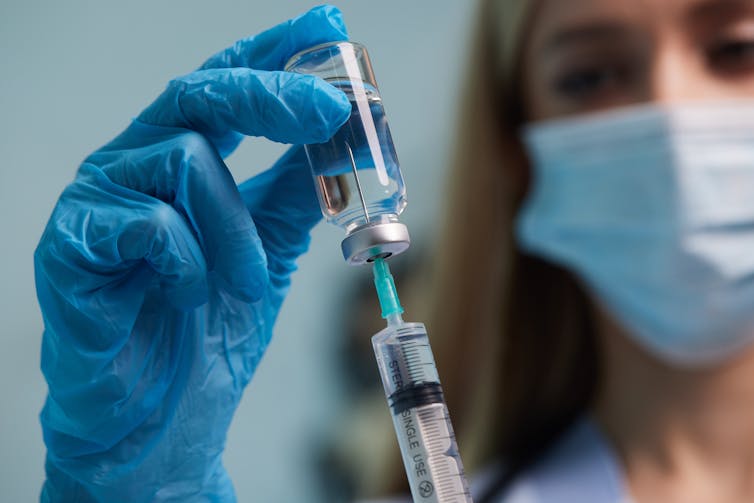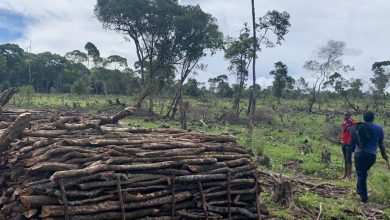In the rare event of a vaccine injury, Australians should be compensated

مجلة المذنب نت متابعات عالمية:
Vaccination is one of the most effective methods to protect individuals and the broader public from disease. Vaccines are typically given to healthy people to prevent disease, so the bar for safety is set high.
People benefit from vaccination at an individual level because they’re protected from disease. But for some vaccines, strong community uptake leads to “herd immunity”. This means people who are unable to be vaccinated can be protected by the “herd”.
As with any prescribed medicine, vaccines can cause side effects. In the rare case that COVID vaccines did cause a specified serious injury (the scheme listed certain conditions that a person could claim for), Australians have been able to claim compensation. But this ends at the end of this month.
From then, Australians won’t be able to access no-fault compensation for any vaccine injury – from COVID or any others.
Why compensate people for vaccine injuries?
Fortunately, serious vaccine injuries are rare. Most are not a result of error in vaccine design, manufacturing or delivery, but are a product of a small but inherent risk.
As a result, people who suffer serious vaccine injuries cannot get compensation through legal mechanisms. This is because they can’t demonstrate the injury was caused through negligence.
Vaccine injury compensation schemes compensate people who have a serious vaccine injury following administration of properly manufactured vaccines.
The COVID vaccine claims scheme
In 2021, in recognition of the rare risk of a serious vaccine injury, and in support of the roll out of the COVID vaccine program, the Australian government introduced a COVID vaccine claims scheme.
The aim was to provide a simple, streamlined process to compensate people who suffered a moderate to severe vaccine injury, without the need for complex legal proceedings. It was limited to TGA-approved COVID vaccines, and to specific reactions.
The Australian government has said the scheme will close this month and claims need to be lodged before September 30 2024.
Following its closure, Australia will not have a vaccine injury compensation scheme.
Australia is lagging internationally
Australia lags behind 25 other countries including the United States, United Kingdom and New Zealand which have comprehensive no-fault vaccine injury compensation schemes. These cover both COVID and non-COVID vaccines.
The schemes are based on the ethical principle of “reciprocal justice”. This acknowledges that people acting to benefit not just themselves but also the community (for the benefit of the “herd”) should be compensated by the same community if it has resulted in harm.
Monkey Business Images/Shutterstock
So what happens in Australia now?
In Australia, people with non-COVID vaccine injuries or COVID vaccine injuries not covered by the current claims scheme must bear the costs associated with their injury by themselves or access publicly funded health care. They will not receive any compensation for their injury and suffering.
Australia’s National Disability Insurance Scheme (NDIS) provides funding support to access therapies for people with a permanent and significant disability. However, it does not cover temporary vaccine-related injuries.
Participants with vaccine injuries as a result of taking part in a clinical vaccine trial are compensated. This typically includes income-replacement, personal assistance expenses and reimbursement of expenses resulting from the incident, including medical expenses.
In Australia, we also have strong compulsion for people to receive routine vaccines through legislative requirements such as No Jab No Pay (which requires children to be immunised to receive some government payments) and, in some states, No Jab No Play (which requires children be fully immunised to attend childcare).
Countries such as ours that mandate vaccination without providing no-fault injury compensation schemes for rare vaccine injury could be abrogating the social contract by not protecting the individual and community.
It’s time to set up an Australian scheme
The Australian immunisation system is among the most comprehensive in the world. Our government-funded national immunisation program provides free vaccines for infants, children and adults for at least 15 diseases.
We also have a whole-of-life immunisation register and comprehensive vaccine safety surveillance system.

sergey kolesnikov/Shutterstock
A recent Senate committee recommended:
the Australian government consider the design and compensation arrangements of a no-fault compensation scheme for Commonwealth-funded vaccines in response to a future pandemic event.
Vaccines are designed to be very safe and effective. But the “insurance policy” of an injury compensation scheme, if designed and communicated appropriately, should build trust and give confidence to health workers and the general public to support our national vaccine program. This is particularly important given the reductions in uptake of routine vaccines.
How should it work?
A no-fault vaccine injury compensation scheme could be funded via a vaccine levy system, as is done in the US, where an excise tax is imposed on each dose of vaccine.
An effective vaccine injury compensation scheme needs to be:
- accessible, with low legal and financial barriers
- transparent, with clear decision-making processes, compensation frameworks and funding responsibilities
- timely, with short, clear timeframes for decision-making
- fair, with people compensated adequately for the harm they’ve suffered.
Legislation to introduce and allocate funds to support an Australian injury compensation scheme for all vaccines is overdue. The draft National Immunisation Strategy 2025–2030 hinted at the opportunity to explore the feasibility of a no fault compensation scheme for all vaccines the Australian government funds, without committing to such a program.
An Australian vaccine injury scheme, covering all national immunisation program vaccines, not just pandemic use vaccines, should be seen as a crucial component of our public health system and a social responsibility commitment to all Australians.
نشكركم على قراءة المنشور عبر مجلة المذنب نت, المتخصصة في التداول والعملات الرقمية والمشفرة














